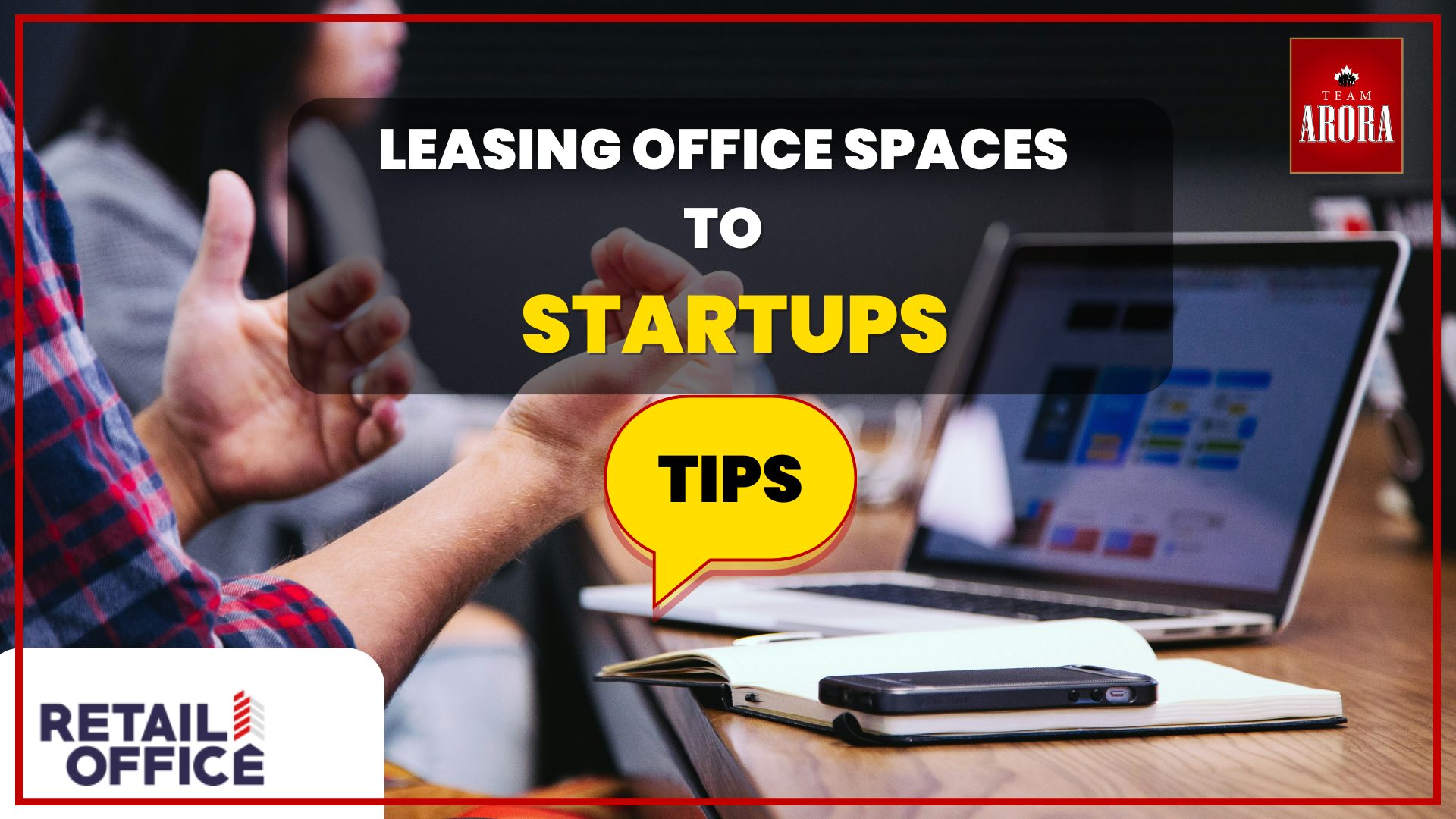Leasing office spaces is a critical decision for startups. It can significantly influence their growth trajectory, operational efficiency, and financial health. For Canadian startups, finding the right office space involves understanding market trends, negotiating favourable lease terms, and ensuring the space aligns with the company’s culture and needs. Here are some essential tips for leasing office spaces to startups, along with a real-time story of a successful Canadian startup.
1. Understand Your Needs
Before diving into the leasing process, it’s crucial to define your startup’s needs clearly. Consider the following:
- Size and layout: How many employees do you have, and what kind of layout suits your work style? Open spaces encourage collaboration, while private offices provide focus.
- Location: Proximity to public transportation, clients, and amenities can impact employee satisfaction and business operations.
- Budget: Determine a realistic budget for rent, including potential costs for utilities, maintenance, and other fees.
2. Research Market Trends
Stay informed about the latest trends in the Canadian commercial real estate market. Market conditions can vary significantly between cities like Toronto, Vancouver, and Montreal. Understanding these trends can help you negotiate better lease terms and avoid overpaying.
3. Negotiate Flexible Lease Terms
Startups need flexibility as they grow. When negotiating your lease, consider:
- Shorter lease durations: Opt for a one- or two-year lease with renewal options.
- Expansion options: Ensure the lease allows for expansion if your team grows.
- Exit clauses: Negotiate an exit clause to minimize penalties if you need to break the lease early.
4. Assess Amenities and Services
Modern office spaces often come with various amenities and services that can add value for startups. Look for features like high-speed internet, conference rooms, on-site parking, and shared facilities. These can enhance productivity and create a more attractive workplace.
5. Plan for Future Growth
While it’s important to meet your current needs, consider how the space can accommodate future growth. Choose a location with the potential for expansion and ensure the lease terms support scalability.
6. Seek Professional Advice
Working with a commercial real estate broker who understands the needs of startups can be invaluable. They can provide insights into market conditions, help identify suitable properties, and negotiate favourable terms on your behalf.
Real-Time Story: Shopify’s Journey
“Shopify, a Canadian e-commerce giant, started as a small startup in Ottawa. Founded in 2006 by Tobias Lütke, Daniel Weinand, and Scott Lake, Shopify’s journey from a small office to a multinational corporation is a testament to strategic office space leasing.
Initially, Shopify operated from a small office in Ottawa’s ByWard Market. As the company grew, it moved to a larger space in the same neighbourhood, maintaining its commitment to a vibrant and accessible location. This decision proved advantageous as it attracted talent and kept the team connected to the local startup ecosystem.
One of Shopify’s critical moves was securing flexible lease terms that allowed for expansion. The company’s leadership understood the importance of scalability and negotiated leases that provided options for additional space as needed. This foresight enabled Shopify to grow without the constraints of long-term lease commitments.
Shopify’s success story is well-documented in publications like The Globe and Mail, which highlights the company’s strategic decisions in office space leasing as a factor in its growth. Their approach to leasing office spaces offers valuable lessons for startups aiming to follow a similar path.”
Leasing office spaces for startups involves careful planning, strategic negotiation, and a keen understanding of market trends. By focusing on flexibility, future growth, and professional advice, Canadian startups can secure office spaces that support their journey to success. Shopify’s story illustrates the importance of these principles and serves as an inspiration for new ventures in the real estate business.
For startups, making informed decisions about leasing office spaces can set the foundation for long-term success. With the right approach, office space can be more than just a place to work; it can be a catalyst for growth and innovation.
FAQs for Leasing Office Spaces to Startups
1. What should startups consider when choosing an office location?
Startups should consider factors such as proximity to public transportation, accessibility for employees, proximity to clients and partners, availability of local amenities (restaurants, cafes, gyms), and the overall safety and vibe of the neighbourhood. Additionally, being in a vibrant area can enhance networking opportunities and attract talent.
2. How can a startup ensure it doesn’t overpay for office space?
To avoid overpaying, startups should conduct thorough market research to understand current rental rates in their desired area. Engaging a commercial real estate broker can provide insights into fair pricing and help negotiate favourable terms. Additionally, startups should look for flexible lease terms and avoid unnecessary amenities that can drive up costs.
3. What are the benefits of flexible lease terms for startups?
Flexible lease terms provide startups with the ability to scale their space according to their growth. Shorter lease durations, renewal options, and exit clauses allow startups to adjust their office space as their team expands or their needs change. This flexibility helps manage financial risk and ensures that the office space can adapt to the company’s evolving requirements.
4. What amenities should startups look for in an office space?
Startups should prioritize amenities that enhance productivity and employee satisfaction. Key amenities include high-speed internet, meeting and conference rooms, on-site parking, kitchen facilities, and secure access. Additional benefits such as fitness centers, communal spaces, and event areas can also contribute to a positive work environment and help attract and retain talent.
5. How can working with a commercial real estate broker benefit a startup?
A commercial real estate broker brings expertise and knowledge of the market, helping startups identify suitable properties that meet their needs and budget. Brokers can negotiate better lease terms, provide insights into market trends, and offer professional advice on property selection and lease agreements. Their guidance can save startups time, effort, and money while ensuring they secure the best possible office space.
